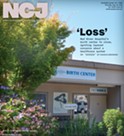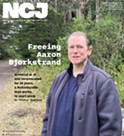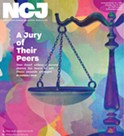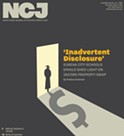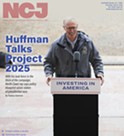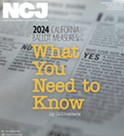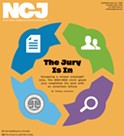Tuesday, August 27, 2024
Eureka City Schools to Talk Jacobs, Grand Jury Response
Posted By Thadeus Greenson @ThadeusGreenson on Tue, Aug 27, 2024 at 3:34 PM
The California Highway Patrol appears to be back at the table, negotiating to purchase 8.3 acres of the former Jacobs Middle School campus from Eureka City Schools.
A closed session item for the board to conference with Superintendent Gary Storts, the district’s negotiator, concerning price and terms of payment of a potential deal with CHP, kicks off the agenda for the board’s Thursday meeting, which also will feature open session items discussing the future and immediate past of the Jacobs site.
In the first meeting since the district’s controversial $6 million property exchange deal with a mystery developer fell through, the board will hear an update from district staff on possible options for the Jacobs site and discuss the district’s response to a Humboldt County Civil Grand Jury report sharply critical of the board’s handling of the now defunct deal.
The California Highway Patrol has reportedly remained interested in purchasing the property to make it the future home of its Northern Humboldt headquarters since the district board abruptly voted in December to break off negotiations with the agency and instead accept the $6 million exchange offer from a mystery developer. That deal — which would have seen the district trade the property for a small home on I Street and $5.35 million in cash — fell apart earlier this month when the district declined the developer’s request to extend escrow past November and the developer, known only as AMG Communities-Jacobs, LLC, then decided to walk away from the agreement.
According to the district, the CHP had previously offered $4 million to purchase the property, which the district had declared surplus years earlier and had laid dormant since 2012.
In a draft presentation included with the staff report for Thursday’s meeting, Assistant Superintendent of Business Services Paul Ziegler outlines five basic options the board can pursue with the property.
First, the district can simply opt to retain it in its current condition, fencing it off and making some improvements to the adjacent athletic fields. The presentation notes that if the board goes this route, it could then resume the surplus property sale process at any time. In its press statement announcing it was abandoning the deal, AMG Communities-Jacobs, LLC, blamed city opposition to changing the property’s zoning for its decision to walk away but said it may look to resume negotiations with the district if Measure F — a ballot measure coming before voters in November that would rezone the property, among other things — passes. City officials have strongly pushed back against AMG’s assertions, saying they had been actively trying to engage the company’s principals on their plans but received no response, but if the board takes the mystery developer at their word, holding tight for a few months could be an appealing approach.
Bankrolled by Robin P Arkley II’s Security National to the tune of almost $1 million, Measure F seeks to block the city of Eureka’s plans to convert municipally owned parking lots in the downtown and Old Town areas into multi-family housing by including onerous parking requirements that officials say would be cost prohibitive. To make up for the lost housing units, according to proponents, the measure would rezone the Jacobs site to accommodate multi-family housing development, though that wouldn’t prevent a public agency — like the school district or the California Highway Patrol — from building something else there. The measure will be decided by Eureka voters in November.
The second option Ziegler presents is resuming negotiations with CHP, with his presentation noting it “has expressed ongoing interest in purchasing” the site. To some extent, the closed session items regarding negations with the agency indicates district staff is already exploring this option.
The third option is for the board to declare its intent to sell or lease the property, notify the public and begin a competitive bidding process that would allow it to “choose a partner,” noting the sale or lease would not necessarily have to go to the highest bidder.
The fourth option is to consider constructing workforce housing on the site. The district had previously referenced the need for workforce housing as a justification for acquiring the residential property on I Street in the exchange agreement with AMG, and the state of California has recently taken a host of actions to push districts to convert surplus property into housing for teachers and staff, as well as students and their families. The presentation notes, however, that this would entail an “extensive process.”
Finally, Ziegler’s presentation informs the board it could “explore other creative solutions,” including a property exchange like the one explored with AMG, a joint occupancy of the property or a public-private partnership to develop it.
Ziegler’s report is agendized as a discussion item, so no final action will be taken.
In related matters, the board is slated to consider its official — and legally required — reply to the grand jury report from earlier this year that blasted trustees for failing to follow the spirit of California’s open meeting laws and conduct sufficient due diligence before entering into the exchange agreement with AMG.
The proposed response — prepared by Storts — largely disagrees with the grand jury’s six findings, while saying it has implemented some of the oversight outlined in the body’s recommendations.
The draft response disagrees with the grand jury’s finding that the district failed to properly describe the property exchange on its Dec. 14 agenda, as required by state law, depriving the public of an opportunity to be informed and question the details of the board’s upcoming decision. The draft response asserts that the district met noticing requirements for the meeting, a notion experts in California open meeting laws interviewed by the Journal have disputed.
The draft response also disagrees with a grand jury finding that the district should have listed the identity of who was negotiating on behalf of AMG on the agenda, saying that’s not required by state law.
The grand jury also found that the district’s public notice of the pending real estate exchange did not include drafts of the proposed agreement and the accompanying resolution authorizing it, “therefore, the public did not have an opportunity to be informed and to question the pending decision.” The district’s draft response disagrees, saying it released the documents to the public after the board directed staff in closed session to move forward with the agreement and the item was then discussed in open session, with an opportunity for public comment.
“However,” the draft response states, “the board appreciates and understands the grand jury’s concern with allowing the public a longer opportunity to review agreements being considered by the board when feasible.”
The draft response does not address the contention of experts interviewed by the Journal that the law required the draft documents be made available to the public at the same time they were given to the majority of the board, which records indicate came days before meeting. It does, however, later concede that “the public could have been afforded additional time to review the agreement, for example, if the open session item had been deferred to a later board meeting,” but offers no reason why that wasn’t done.
In the draft response, the district flatly dismisses the notion its board acted “without sufficient prudence and due diligence,” but also says the district was under no legal obligation to perform due diligence like reviewing a developer’s financials or prequalifying them.
“The board approved a real estate transaction on the basis that the additional cash consideration would directly benefit the district’s students by aiding needed improvements to district facilities,” the draft response states. “That purpose is directly in line with the district’s mission and statutory authority, while other local public policy issues beyond the district’s responsibility may not be.”
The grand jury recommended the district take a number of actions to avoid a similar situation in the future.
First, it recommended the district designate an employee to attend closed session discussions and keep confidential notes documenting the discussions. The district’s draft response says this will not be implemented, noting it’s illegal to disclose confidential closed session discussions and that such notes “could lead to the impermissible disclosure of such information.”
The grand jury also recommended the district “make details of the Jacobs property negotiations” public, which the district’s draft response says it has already done through open session discussions and responses to public records act requests. The grand jury also recommends the district work to ensure its compliance with the “spirit and intent” of the state’s open meeting laws, which the draft response says the district is already doing.
The district should also create audio and video recordings of all its open session meetings, the grand jury recommended. The district’s draft response says it is working on implementing this change to improve the public’s ability to attend meetings remotely and review them after the fact.
Finally, the grand jury recommended district trustees and staff engage in “comprehensive” training on state open meeting laws from someone outside the district and the California School Boards Association. The draft response indicates this is “partially” happening, saying the board “as a part of their commitment to transparency and openness, annually participates in governing workshops and trainings.” But the draft response contends the recommendation the district use consultants unaffiliated with the district or the association is “unwarranted.”
“The board and district staff are committed to receiving annual governance training, including on the Brown Act, but will continue to exercise the district’s discretion as to the appropriate trainers,” the draft response states.
Storts’ draft response concludes by thanking the grand jury, by way of presiding Humboldt County Superior Court Judge Kelly Neel, who oversees it, for the “insight and recommendations.”
“The board and district staff is committed to take the expressed desire for greater transparency into account in any future real property transactions,” the draft response states. “The board looks forward to shifting focus back to the mission and vision of the district and its support of the important work of educating students.”
The open session of the board meeting will begin at 6:30 p.m. on Thursday, Aug. 29, preceded by closed session at 5:30 p.m., in the Frances H. Taplin Board Room at the district office, 2100 J St.
A closed session item for the board to conference with Superintendent Gary Storts, the district’s negotiator, concerning price and terms of payment of a potential deal with CHP, kicks off the agenda for the board’s Thursday meeting, which also will feature open session items discussing the future and immediate past of the Jacobs site.
In the first meeting since the district’s controversial $6 million property exchange deal with a mystery developer fell through, the board will hear an update from district staff on possible options for the Jacobs site and discuss the district’s response to a Humboldt County Civil Grand Jury report sharply critical of the board’s handling of the now defunct deal.
The California Highway Patrol has reportedly remained interested in purchasing the property to make it the future home of its Northern Humboldt headquarters since the district board abruptly voted in December to break off negotiations with the agency and instead accept the $6 million exchange offer from a mystery developer. That deal — which would have seen the district trade the property for a small home on I Street and $5.35 million in cash — fell apart earlier this month when the district declined the developer’s request to extend escrow past November and the developer, known only as AMG Communities-Jacobs, LLC, then decided to walk away from the agreement.
According to the district, the CHP had previously offered $4 million to purchase the property, which the district had declared surplus years earlier and had laid dormant since 2012.
In a draft presentation included with the staff report for Thursday’s meeting, Assistant Superintendent of Business Services Paul Ziegler outlines five basic options the board can pursue with the property.
First, the district can simply opt to retain it in its current condition, fencing it off and making some improvements to the adjacent athletic fields. The presentation notes that if the board goes this route, it could then resume the surplus property sale process at any time. In its press statement announcing it was abandoning the deal, AMG Communities-Jacobs, LLC, blamed city opposition to changing the property’s zoning for its decision to walk away but said it may look to resume negotiations with the district if Measure F — a ballot measure coming before voters in November that would rezone the property, among other things — passes. City officials have strongly pushed back against AMG’s assertions, saying they had been actively trying to engage the company’s principals on their plans but received no response, but if the board takes the mystery developer at their word, holding tight for a few months could be an appealing approach.
Bankrolled by Robin P Arkley II’s Security National to the tune of almost $1 million, Measure F seeks to block the city of Eureka’s plans to convert municipally owned parking lots in the downtown and Old Town areas into multi-family housing by including onerous parking requirements that officials say would be cost prohibitive. To make up for the lost housing units, according to proponents, the measure would rezone the Jacobs site to accommodate multi-family housing development, though that wouldn’t prevent a public agency — like the school district or the California Highway Patrol — from building something else there. The measure will be decided by Eureka voters in November.
The second option Ziegler presents is resuming negotiations with CHP, with his presentation noting it “has expressed ongoing interest in purchasing” the site. To some extent, the closed session items regarding negations with the agency indicates district staff is already exploring this option.
The third option is for the board to declare its intent to sell or lease the property, notify the public and begin a competitive bidding process that would allow it to “choose a partner,” noting the sale or lease would not necessarily have to go to the highest bidder.
The fourth option is to consider constructing workforce housing on the site. The district had previously referenced the need for workforce housing as a justification for acquiring the residential property on I Street in the exchange agreement with AMG, and the state of California has recently taken a host of actions to push districts to convert surplus property into housing for teachers and staff, as well as students and their families. The presentation notes, however, that this would entail an “extensive process.”
Finally, Ziegler’s presentation informs the board it could “explore other creative solutions,” including a property exchange like the one explored with AMG, a joint occupancy of the property or a public-private partnership to develop it.
Ziegler’s report is agendized as a discussion item, so no final action will be taken.
In related matters, the board is slated to consider its official — and legally required — reply to the grand jury report from earlier this year that blasted trustees for failing to follow the spirit of California’s open meeting laws and conduct sufficient due diligence before entering into the exchange agreement with AMG.
The proposed response — prepared by Storts — largely disagrees with the grand jury’s six findings, while saying it has implemented some of the oversight outlined in the body’s recommendations.
The draft response disagrees with the grand jury’s finding that the district failed to properly describe the property exchange on its Dec. 14 agenda, as required by state law, depriving the public of an opportunity to be informed and question the details of the board’s upcoming decision. The draft response asserts that the district met noticing requirements for the meeting, a notion experts in California open meeting laws interviewed by the Journal have disputed.
The draft response also disagrees with a grand jury finding that the district should have listed the identity of who was negotiating on behalf of AMG on the agenda, saying that’s not required by state law.
The grand jury also found that the district’s public notice of the pending real estate exchange did not include drafts of the proposed agreement and the accompanying resolution authorizing it, “therefore, the public did not have an opportunity to be informed and to question the pending decision.” The district’s draft response disagrees, saying it released the documents to the public after the board directed staff in closed session to move forward with the agreement and the item was then discussed in open session, with an opportunity for public comment.
“However,” the draft response states, “the board appreciates and understands the grand jury’s concern with allowing the public a longer opportunity to review agreements being considered by the board when feasible.”
The draft response does not address the contention of experts interviewed by the Journal that the law required the draft documents be made available to the public at the same time they were given to the majority of the board, which records indicate came days before meeting. It does, however, later concede that “the public could have been afforded additional time to review the agreement, for example, if the open session item had been deferred to a later board meeting,” but offers no reason why that wasn’t done.
In the draft response, the district flatly dismisses the notion its board acted “without sufficient prudence and due diligence,” but also says the district was under no legal obligation to perform due diligence like reviewing a developer’s financials or prequalifying them.
“The board approved a real estate transaction on the basis that the additional cash consideration would directly benefit the district’s students by aiding needed improvements to district facilities,” the draft response states. “That purpose is directly in line with the district’s mission and statutory authority, while other local public policy issues beyond the district’s responsibility may not be.”
The grand jury recommended the district take a number of actions to avoid a similar situation in the future.
First, it recommended the district designate an employee to attend closed session discussions and keep confidential notes documenting the discussions. The district’s draft response says this will not be implemented, noting it’s illegal to disclose confidential closed session discussions and that such notes “could lead to the impermissible disclosure of such information.”
The grand jury also recommended the district “make details of the Jacobs property negotiations” public, which the district’s draft response says it has already done through open session discussions and responses to public records act requests. The grand jury also recommends the district work to ensure its compliance with the “spirit and intent” of the state’s open meeting laws, which the draft response says the district is already doing.
The district should also create audio and video recordings of all its open session meetings, the grand jury recommended. The district’s draft response says it is working on implementing this change to improve the public’s ability to attend meetings remotely and review them after the fact.
Finally, the grand jury recommended district trustees and staff engage in “comprehensive” training on state open meeting laws from someone outside the district and the California School Boards Association. The draft response indicates this is “partially” happening, saying the board “as a part of their commitment to transparency and openness, annually participates in governing workshops and trainings.” But the draft response contends the recommendation the district use consultants unaffiliated with the district or the association is “unwarranted.”
“The board and district staff are committed to receiving annual governance training, including on the Brown Act, but will continue to exercise the district’s discretion as to the appropriate trainers,” the draft response states.
Storts’ draft response concludes by thanking the grand jury, by way of presiding Humboldt County Superior Court Judge Kelly Neel, who oversees it, for the “insight and recommendations.”
“The board and district staff is committed to take the expressed desire for greater transparency into account in any future real property transactions,” the draft response states. “The board looks forward to shifting focus back to the mission and vision of the district and its support of the important work of educating students.”
The open session of the board meeting will begin at 6:30 p.m. on Thursday, Aug. 29, preceded by closed session at 5:30 p.m., in the Frances H. Taplin Board Room at the district office, 2100 J St.
Speaking of...
Readers also liked…
more from the author
-
Eureka City Schools to Talk Jacobs, Grand Jury Response
- Aug 29, 2024
-
'Loss'
Mad River Hospital's birth center to close, igniting layered concerns about a healthcare system in 'crisis'
- Aug 29, 2024
-
Freeing Aaron Bjorkstrand
Arrested at 15 and incarcerated for 26 years, a McKinleyville man works to start anew
- Aug 22, 2024
- More »







